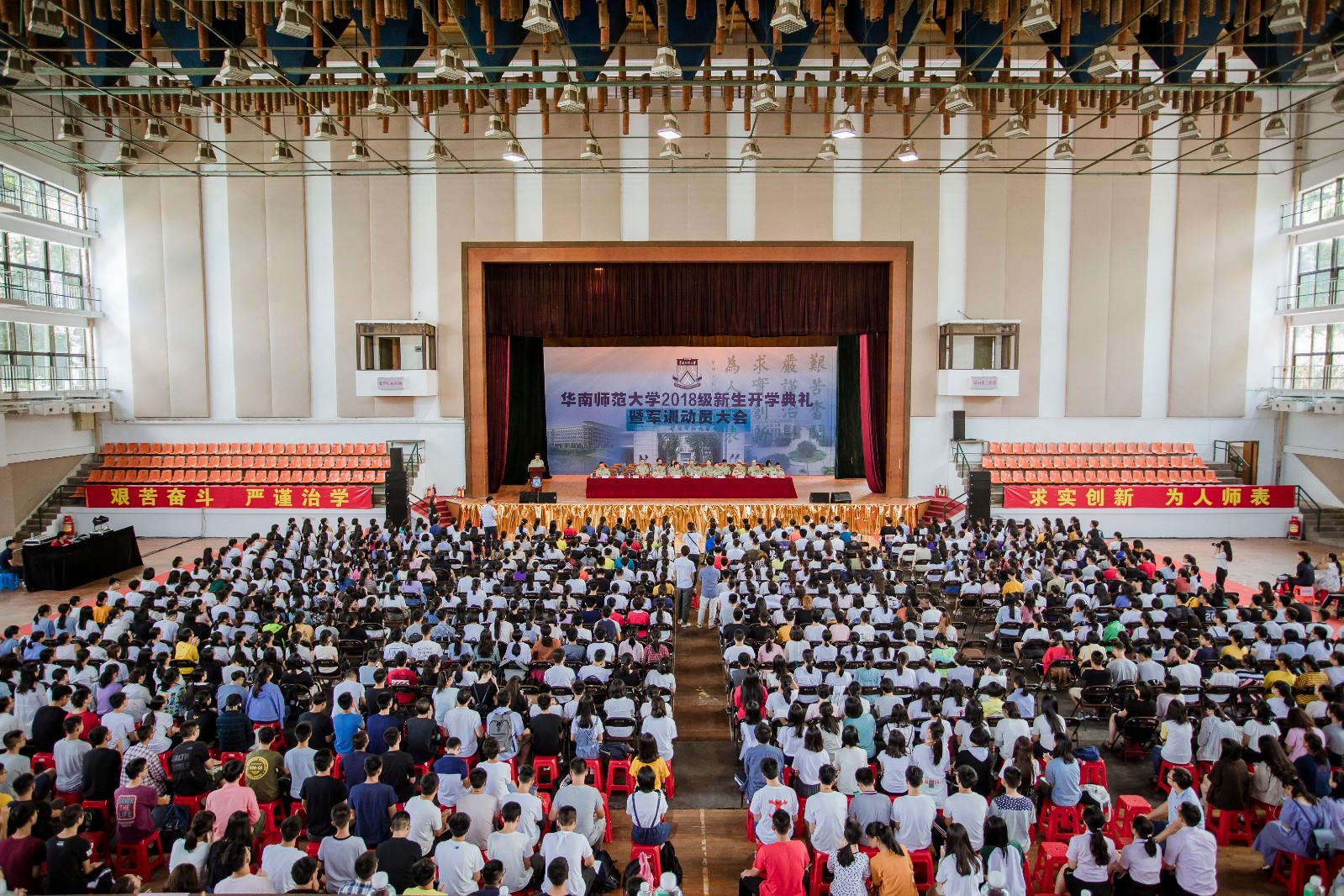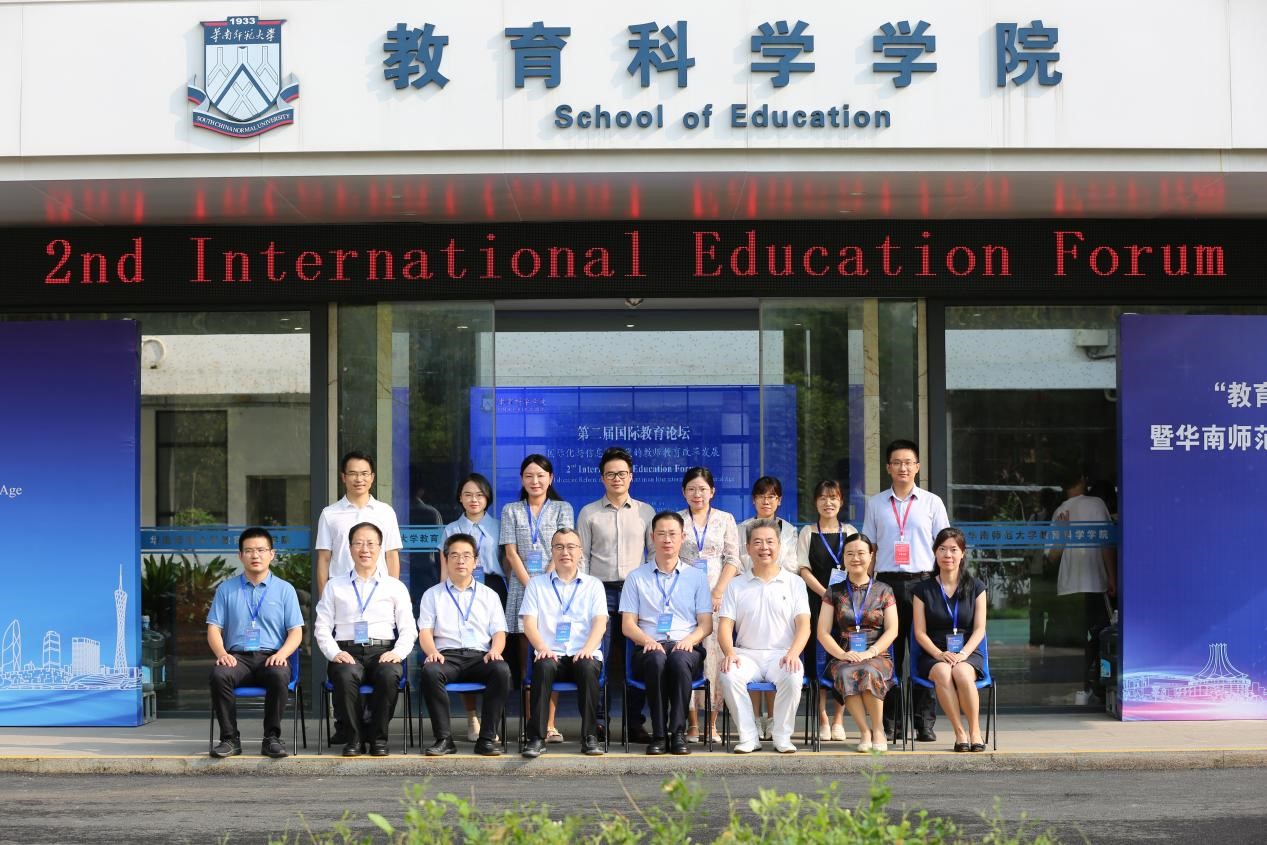
Likes
The School of Education at SCNU held the Second International Education Forum on September 23, with the theme of "Teacher Education Reform and Development in an International and Digital Age".

The group photo of the participants at the 2nd International Education Forum.
Experts and scholars of renowned universities from Germany, Canada, the United States, New Zealand, Japan, and China attended the forum and discussed important issues such as improving the quality of teacher education and the application of artificial intelligence (AI) in teacher education. The forum aimed to investigate the development of teacher education from a global perspective, trying to nurture new thoughts for teacher education in the international and digital era and provide references for training innovative teacher teams.
Li Shengbing, dean of the School of Education, delivered the opening speech and extended his warm welcome and sincere gratitude to all the guests and delegates in attendance. He pointed out that internationalization and informatization not only help enhance cross-cultural understanding and build friendships across countries, but also play an important role in education and social progress. Having changed the world, this transformation also bring new opportunities and challenges for teacher education. He believes that the forum will provide valuable opportunities for international cooperation and information technology application in the field of teacher education, which will help develop teacher education and build a more inclusive and diversified education system.
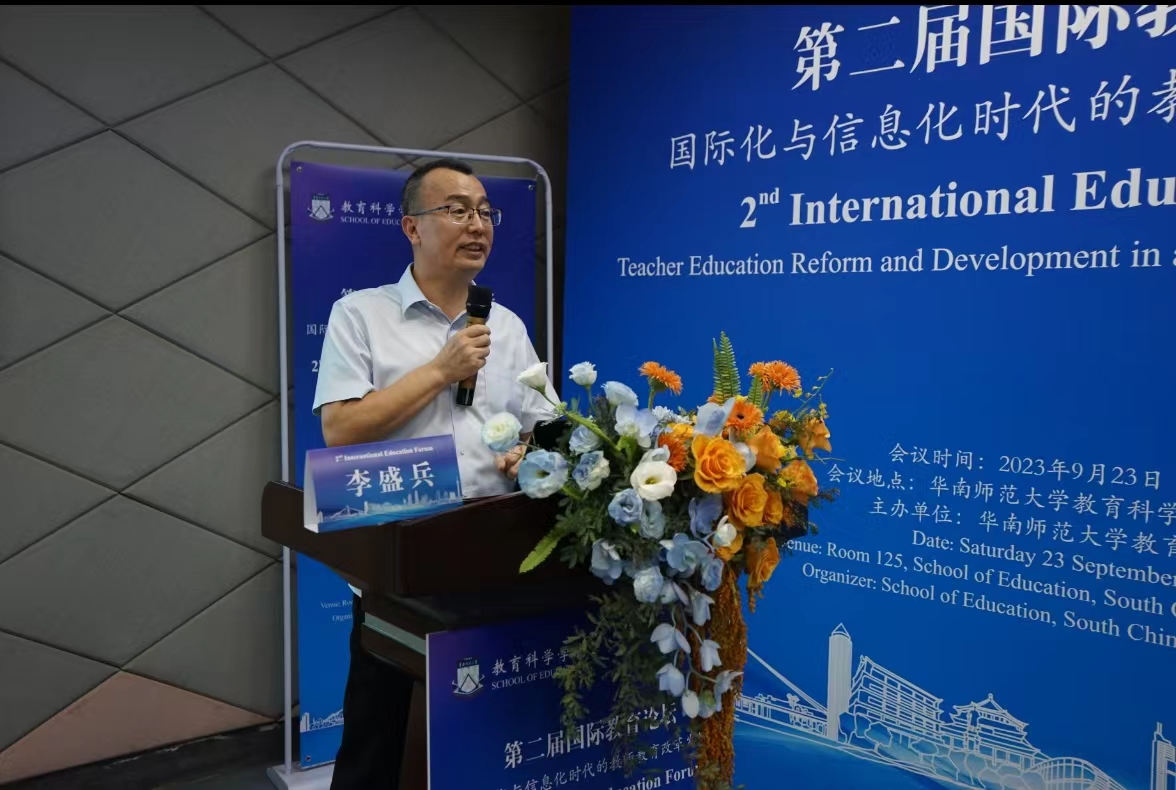
Li Shengbing, dean of the School of Education, delivers the opening speech.
Six experts and scholars delivered reports during the morning session of the forum.
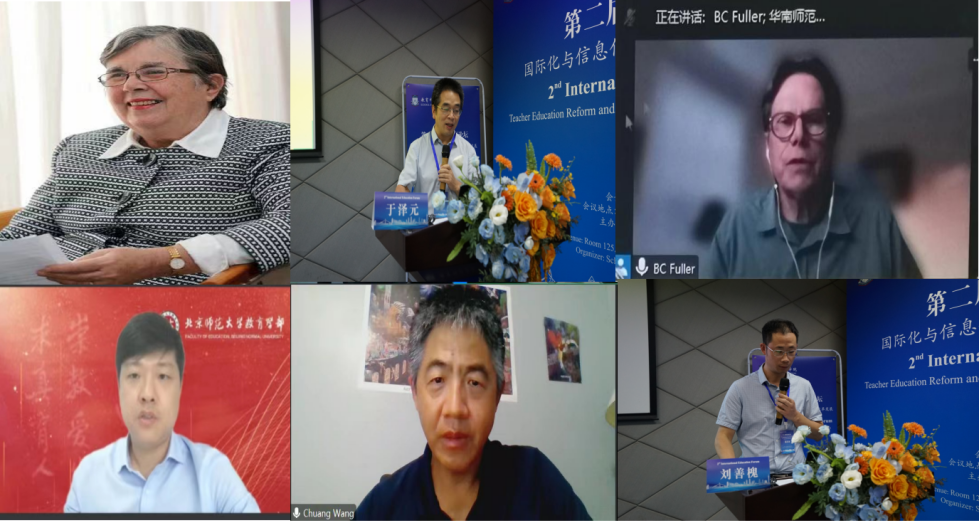
The experts and scholars make reports in the morning session.
Xu Meide, a professor from the Ontario Institute for Studies in Education, University of Toronto, advocated a bottom-up approach to reform and profoundly reflected on moral education and core values in teacher training, aiming to improve the quality of teacher education.
Yu Zeyuan, dean of International College at Southwest University, proposed that China is now facing intense international competition and therefore needs to cultivate talents with core competitiveness. Against such a backdrop, "Teaching with Big Ideas" is of great importance, which requires the teachers to integrate fragmented knowledge and information, and build cognitive models to enhance students' problem-solving ability in complex situations.
Professor Bruce Fuller of the Graduate School of Education, at the University of California, Berkeley, emphasized that teachers should choose social practice activities carefully. He said that social practice activities should be beneficial to students according to their characteristics, and called on schools to design teacher training programs that accord with the features of children's learning and different socialization goals.
Song Huan, vice director of the Center for Teacher Education Research at Beijing Normal University, provided an in-depth analysis of the opportunities and challenges for teacher education reform and advocated coping strategies for teachers. Teachers should constantly adjust to new education modes, thereby striking a balance between using the new AI technology and traditional ways of teaching.
Professor Wang Chuang of the Cato College of Education at the University of North Carolina, Charlotte discussed the application of AI as teaching assistants. In the age of AI, learning should follow moral principles as well as cognitive principles. Learners should be honest while using AI and should realize that AI is used to facilitate and enhance learning rather than hindering it.
Liu Shanhuai, vice dean of the China Institute of Rural Education Development at Northeast Normal University, focused on the evaluation and improvement of rural teachers' digital literacy. He proposed that efforts should be made to improve digital teaching and the digital learning environment in rural schools, establish a coordinated training and development system, create a digital community, and establish a dynamic assessment mechanism.
The following round table discussion covered topics including how to guide students to use ChatGPT properly, the new roles of teachers, and digital literacy, on which guests and attendees exchanged perspectives.
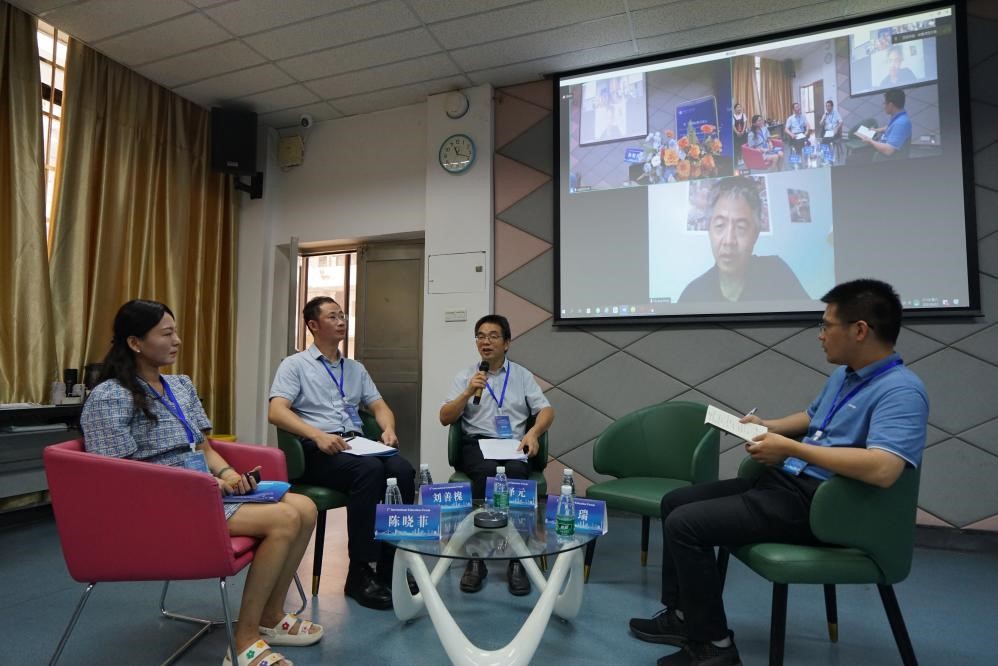
The round table discussion in the morning session.
In the afternoon session, seven experts and scholars reported in two groups.

The photo of the guests in the afternoon session.
From a cross-cultural perspective and based on the results of the study concerning hundreds of domestic and international junior schools, Zhao Mingren, vice dean of the Faculty of Education at Shenzhen University, and Dr. Jin Rui from the same university, analyzed different teachers' perceptions about school ethos. Compared with teachers in the United States and China, teachers in Finland have greater autonomy and decision-making power and participate more actively in school activities and management.
Christoph Wulff, a professor of the Department of Education and Psychology at the Free University of Berlin, explained the concept of Global Citizenship Education in the context of the Anthropocene. The Anthropocene referred to the world's status quo, where human activities had expanded globally, leaving no region today untouched by human influence. Global citizenship education and sustainable development education are currently two complementary elements in what is sometimes called the Anthropocene.
Yang Rui, dean of the Faculty of Education at the University of Hong Kong, discussed the development of higher education in China and its global impact at the cultural level in depth. Higher education in China has absorbed western modes in terms of system and organization, but has rarely incorporated western cultural elements. This westernization of the system and the sinicization of the culture have together forged the multi-value model in Chinese higher education.
Professor Marek Tesser, from the Faculty of Education and Social Work of the University of Auckland, probed into the study of Global Childhoods from multiple perspectives of philosophy, theory, and practice.
Hiroyuki Yamada, a professor at the Faculty of Education, at Hiroshima University, analyzed why Japan abolished the teaching license renewal system to reshape the professionalism of teachers. The Ministry of Education of Japan had forced teachers to take assigned courses for teaching licenses, which made the teachers spend time learning homogenized knowledge and therefore undermine their professionalism.
Professor Li Shengbing systematically elaborated on Lin Liru's thoughts on teacher education and their revelations. He suggested that more attention should be paid to practical skills training in university-affiliated schools, the connection between developing teacher education and building a strong nation, as well as the integration of international theories and domestic practice.
During the second round table discussion, guests and the participants of the conference engaged in in-depth discussions and exchanged views on topics such as the international differences in teacher education, the reasons for abolishing teaching licenses, different expressions for teacher education, and so on.
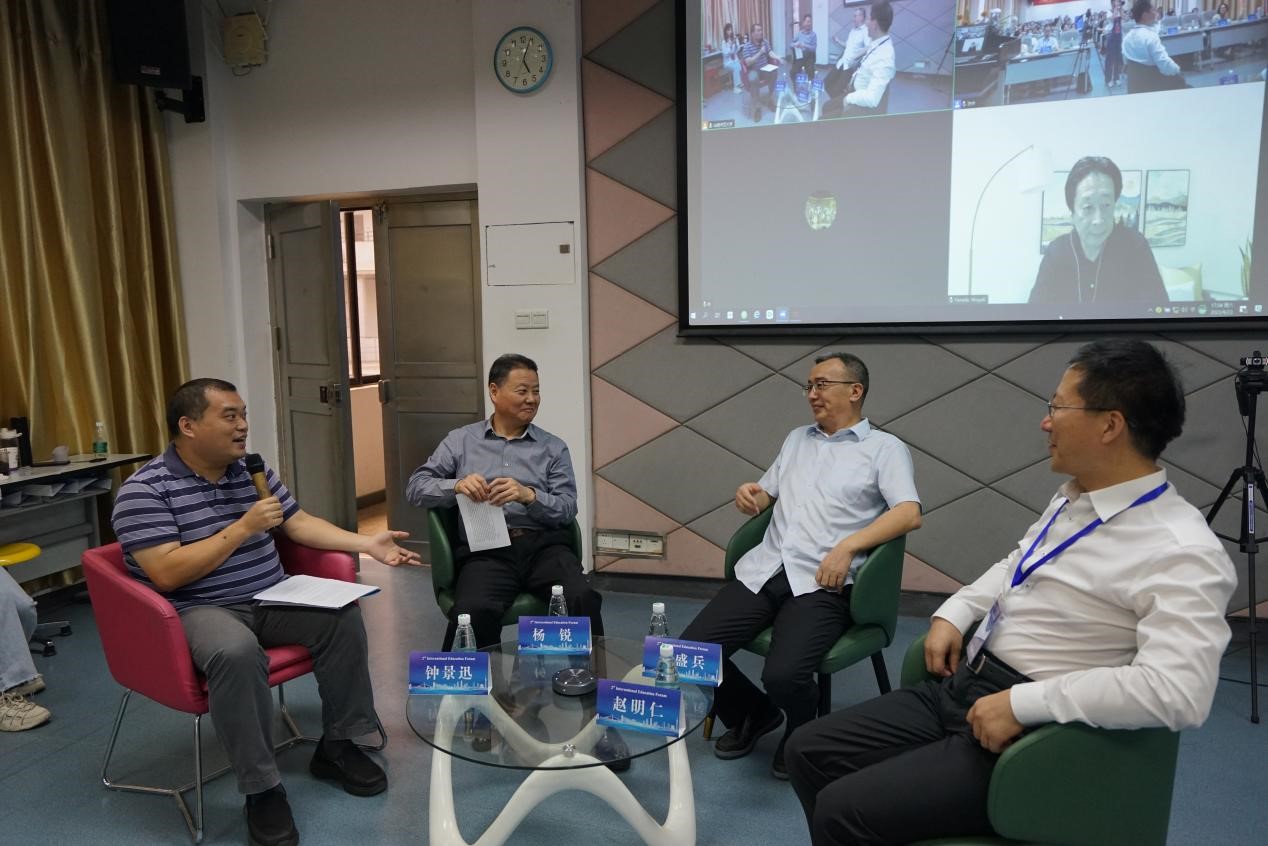
The round table discussion in the afternoon session.
Zhuo Zelin, a professor at the School of Education of SCNU, made the closing summary for the forum. He said that teachers are the most crucial educational resource. Nonetheless, AI is needed to promote teacher education reform and development and to develop China into a leading country in education. He also expressed his hope for the forum, that the exchanged ideas and insights would enable teacher education to better serve society and promote prosperity and advance education in the world.
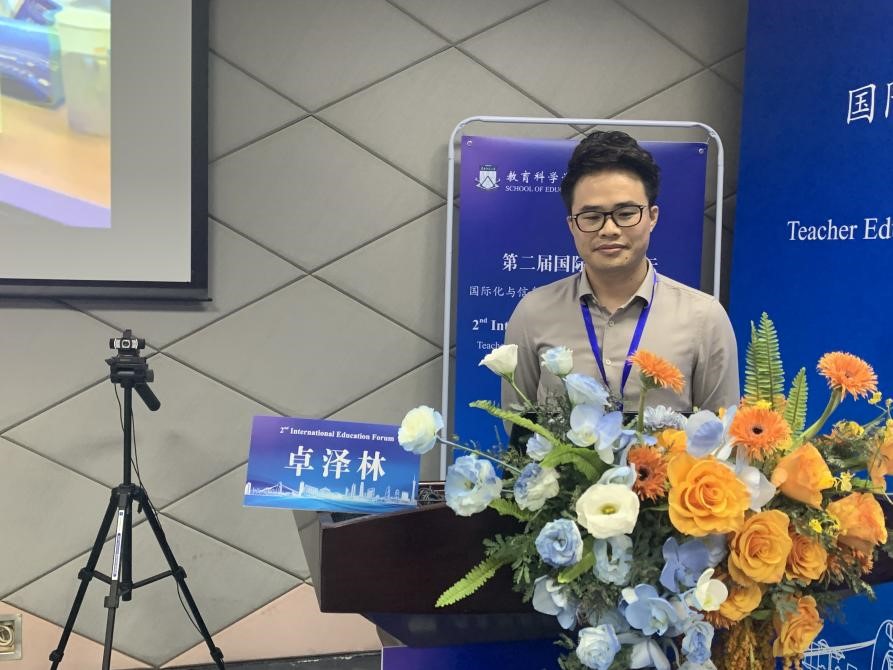
Professor Zhuo draws conclusions for the forum.
Source from SCNU News Center
Translated by Liang Lihua, Luo Xiaoying
Proofread by Edwin Baak
Edited by Wang Yingmin
What to read next:


